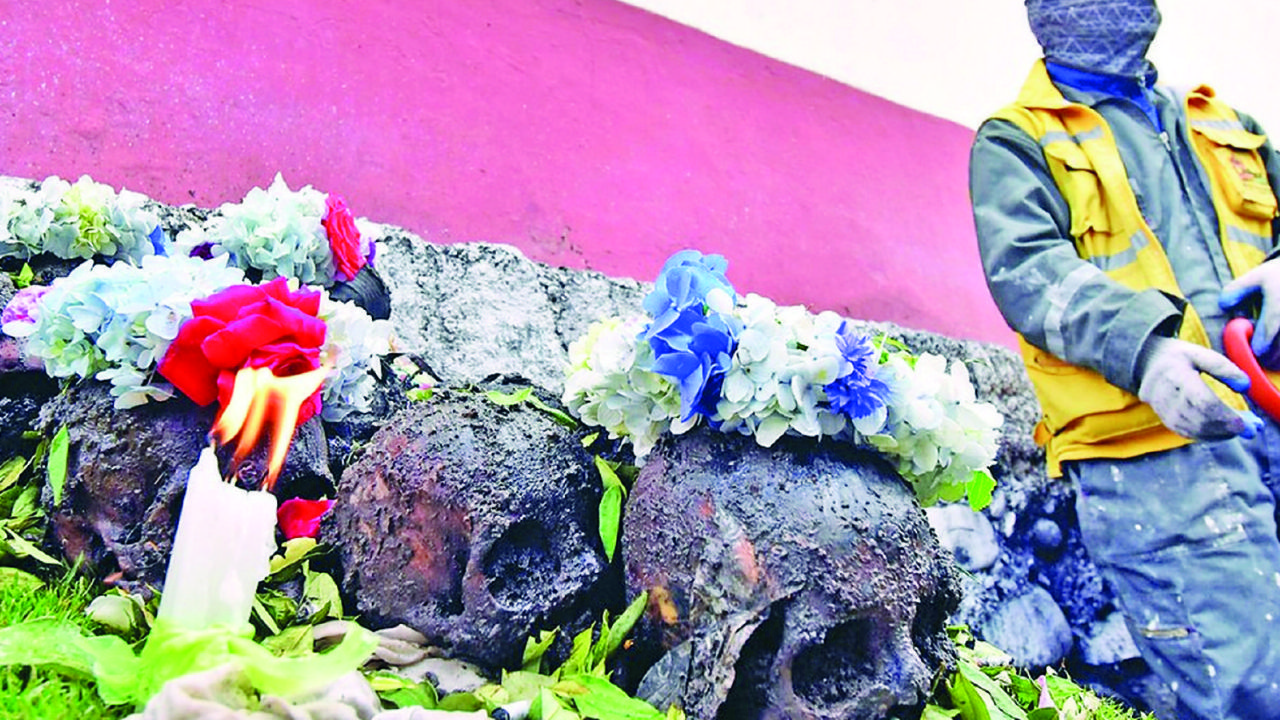Black Friday for Envidrio workers fell October 29. That day, the long faces, sad eyes and a breath of the “candle to socialism” that former president José Mujica spoke of were the immediate response to what the company’s creditors had decided when they rejected the latest proposal from an investor Venezuelan to save it: the company had to be liquidated.
The glass factory stopped producing in December 2019 due to inability to meet its obligations. The company has a debt of more than US $ 40 million counting on that of the Development Fund (Fondes), Bandes, BPS, UTE, Cousa and Inefop, which was the creditor that decided not to accept the proposal of the Uniglass company, led by a Venezuelan and based in the United States, on the understanding that he did not give sufficient guarantees.
The more than thirty years of experience in the industry –today there are still a handful of the workers who were trained in Cristalerías del Uruguay–, State support through loans and political backing during the second Frente Amplio government were not enough to keep the furnace going.
Despite the quiet factory in the Cerro Industrial Technological Park, the broken bottles accumulated at the entrance and the dust from the last glass thrown on the ground, the company director Ronald Rojas assures that the business is profitable, something with which they coincide even some of the creditors.
Dante fernandez
The glass factory has been idle for almost two years.
Why, if the glass industry appears to be so prosperous, did Envidrio not work out?
Envy is made to fall by many things. Many triggers. I can agree that they say ‘no, because self-management does not know how to manage’. It’s okay. We can go into details.
Do you recognize management problems?
No one denies that there were management problems. If we had had a business head, we would not have left it to Envy to have 120 operators, when in the whole world it is one operator per ton. We extracted almost 60 tons of glass, there were 60 workers. We had 120 workers in a factory that was for 60. Because we bet on work. None of the companions became rich or millionaire, nor took a peso of anything.
How do you analyze self-management, now that you are distancing yourself?
It is very difficult when you did not have all the elements to say “we had everything”: there was a lack of permanent working capital.
But they had support from the State with millionaire loans and they had political support. Did not reach?
To invest, not to work. We invested in a company, barbarian. If we had gotten an investor three months earlier, we might not have been unemployed.
We needed money to keep the factory up and running. Ash soda is a very expensive component, for example. Sand, coal, all raw materials, energy and wages. You had to have capital.
Wasn’t it just the profits from the factory?
No, because we happen to things … When the money that came from sales, which was triangulated, many times we were stuck in the banks. We were spending US $ 45,000 a day with the plant on. We were sending a million and a half bottles a week to Brazil. They paid by the week. We did not have the ability to start the other machine and be able to work 100%. If not, it would have been very different. We were about to start a business and we couldn’t.
And why did that fall?
For complaints that were made that we were stealing everything, that it was an embezzlement, that it was a warehouse, that there was no machinery … That went out and that in the business sector, if you are negotiating, with those complaints the company retires. It did us a lot of damage. We lost potential customers.
But for the complaints, the then deputy Daniel Placeres ended up being processed for being on the sides of the counter.
It is debatable. Every time I go to the polls to vote, I vote for someone for work, for security, for livelihood. Prosecuting a legislator for wanting to maintain a source of work without taking anything, only the political revenues that he did something, an investment in the country that is a national industry … Why do I put a legislator there? What do legislators charge a salary for? Because people put them, and people want answers for sources of work. It is not less than Daniel took out his privileges and went to court. And the others, what? Are they painted up there? Is it a national industry that does not interest? Is the flag of public funds not interesting? Perhaps it is wrong because it is a very “worker” look, but it is how I feel it, and I know that many feel it that way.
Would they think about self-management again?
The theme is to merge: the academy and the trench. You need professionals and honest people, because the workers founded two factories, from the ground up. Here the greatest wealth that one of us can have is to retire. There is a cultural issue, there are many people who do not understand it. There are people who do not quite understand that they are employed and have an employer even though they are self-managed. And that is a problem too: if you don’t have a commitment, a root of what is yours … Here there were parts that were yes and parts that were not. Many want to be in the utility but do not want to be in the process.
Are you willing to go back to work for a private?
It was never a point of discussion if the self-management got to have a question that this plant did not work. If the issue is to put a businessman in Envy, we are going to sit down and talk and let them put it. If it is a political issue, put a ring and the politicians are there, but they cannot take the workers hostage to their work. Work for an employer? We always work for an employer. We are not scared. Let’s go up: I want to work.
Glass numbers
Envidrio’s second plant, operating at 100%, has the capacity to produce 130 tons of glass per day. The majority of the products – jars and bottles – were placed on the foreign market. In the last year of operation, Envidrio sent 20 million bottles to the south of Brazil, at times at the rate of one and a half million per week, given that for that country the cost of freight with Uruguay is cheaper than if it bought in its own country .
The domestic market, meanwhile, moves about 7 thousand tons of glass per year. Envidrio’s clients were mainly Conaprole, Ancap and Fábrica Nacionales de Cerveza.
In the sector they agree that the numbers of the glass industry worldwide are on the rise, helped by the trend to reduce the consumption of plastic and use environmentally friendly products.
Without a glass factory in operation, Uruguay has to import some 40 thousand tons of glass per year, at a price that in some cases almost doubles that which could be achieved in the country if the glass factory worked.







